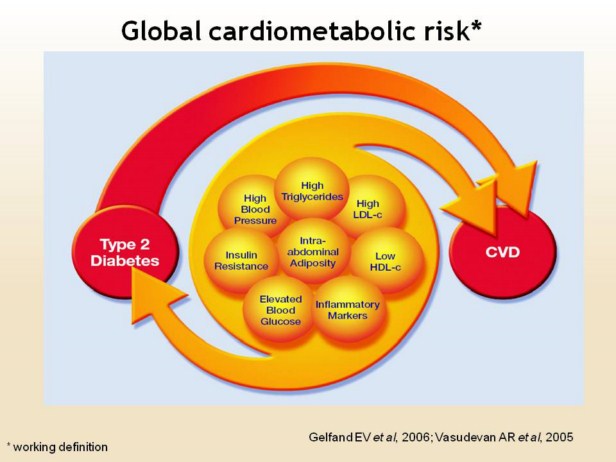| front |1 |2 |3 |4 |5 |6 |7 |8 |9 |10 |11 |12 |13 |14 |15 |16 |17 |18 |19 |20 |21 |22 |23 |24 |25 |26 |27 |28 |29 |30 |31 |32 |33 |34 |35 |36 |37 |38 |39 |40 |41 |42 |43 |44 |45 |46 |47 |48 |49 |50 |51| 52 |53 | 54 |55 |56 |review |
 |
We have understood for decades the roles of ‘classical’ risk factors – elevated LDL-cholesterol, hypertension, elevated blood glucose and smoking – in the pathogenesis of cardiovascular disease. More recent research is continuing to define the contribution of emerging risk factors to the risk of developing type 2 diabetes and cardiovascular disease, particularly in the setting of insulin resistance. Abdominal obesity is associated with multiple cardiometabolic risk factors such as atherogenic elevated blood glucose (hypertriglyceridaemia and low HDL-cholesterol), elevated blood glucose and inflammation, which are major drivers of cardiovascular disease and type 2 diabetes. In addition, atherosclerosis is increasingly regarded as an inflammatory condition.
|